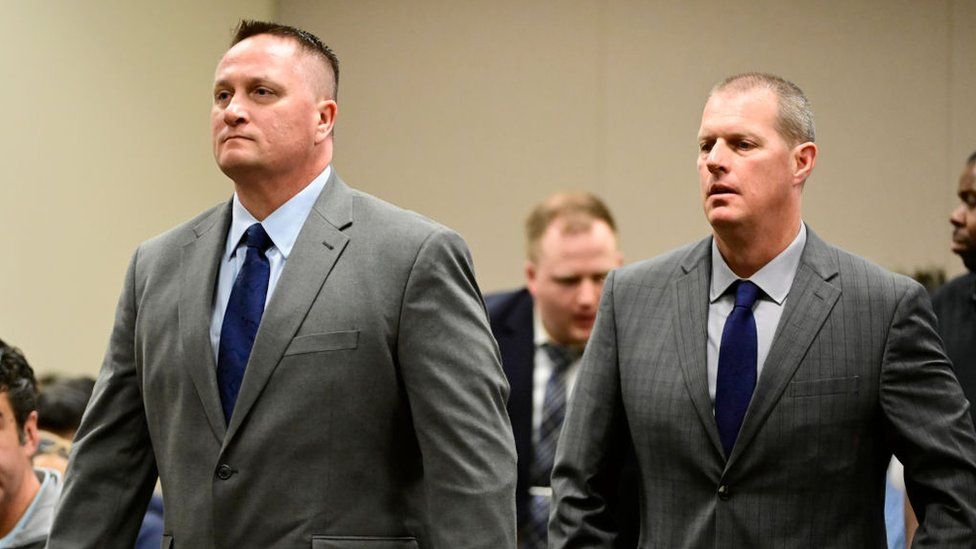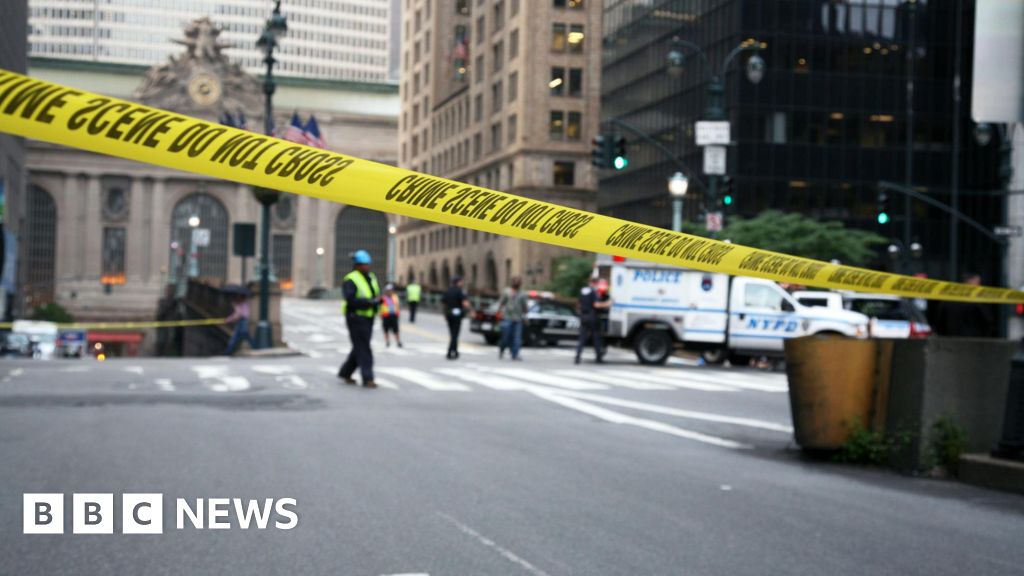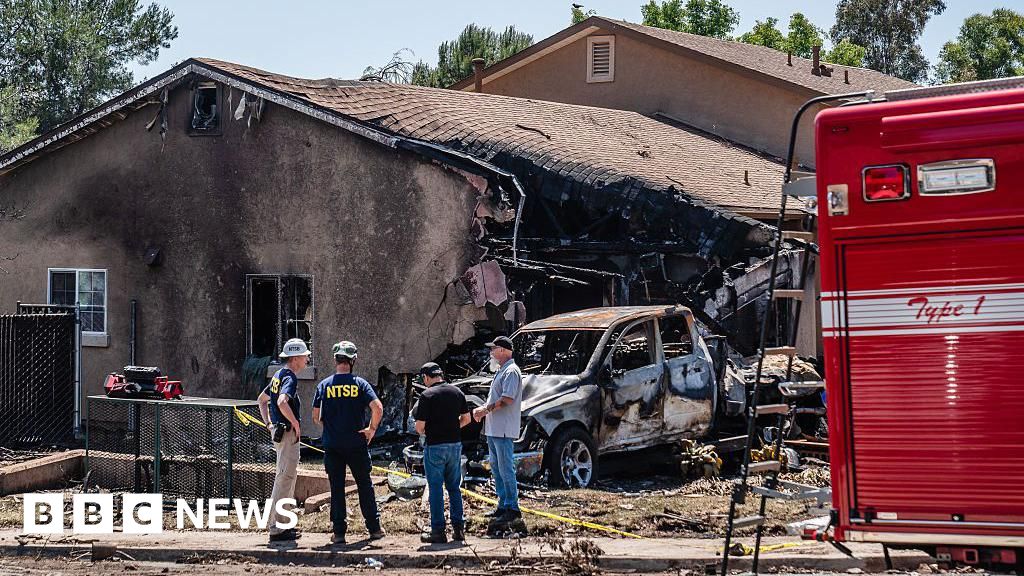ARTICLE AD BOX
 Image source, The Denver Post via Getty Images
Image source, The Denver Post via Getty Images
Opening arguments begin on Wednesday in the trial of paramedics Jeremy Cooper and Peter Cichuniec
By Bernd Debusmann Jr
BBC News, Washington
Opening arguments have begun in the trial of two paramedics charged in the death of Elijah McClain, who was pinned down and injected with ketamine.
The paramedics, Jeremy Cooper and Peter Cichuniec, have pleaded not guilty to manslaughter, criminally negligent homicide and second-degree assault.
Their trial is the last of three to stem from the 2019 death of Mr McClain in the Denver suburb of Aurora.
Two trials resulted in mixed verdicts, with one officer found guilty.
Mr McClain, a 23-year-old black man, was walking home when he was stopped by three white police officers responding to a call about a "sketchy" individual in the area.
At the time of the incident, on 24 August 2019, he was wearing headphones and a balaclava to protect himself from chronic chills caused by anaemia, his family has said. Mr McClain initially ignored the officers' commands to stop.
He was placed in a chokehold during the confrontation that followed. Bodycam footage of the incident shows him repeatedly telling officers: "I can't breathe."
After he was restrained, Mr Cooper and Mr Cichuniec injected him with ketamine, a powerful sedative. He never regained consciousness and died after being removed from life support three days later.
Two officers involved in the incident, Nathan Woodyard and Jason Rosenblatt, were acquitted of charges in November and October, respectively.
Mr Woodyard was reinstated on the Aurora police force Monday and will receive $200,000 (£158,000) in back pay, The Guardian reported.
A third officer, Randy Roedema, was found guilty of criminally negligent homicide and third-degree assault. Prosecutors in that case argued that his statement that "he's definitely on something" contributed to the paramedics' decision to inject him with ketamine.
Prosecutors allege that the two paramedics "deviated from standard protocols" when they injected him.
According to the indictment, the pair believed that Mr McClain was suffering from excited delirium, a condition they believed meant he was "not in the right state of mind" and potentially hyper-aggressive.
Prosecutors say that after notifying officers at the scene of the diagnosis, Mr Cooper injected Mr McClain with 500mg of ketamine, a dosage higher than necessary for his 143lb (65kg) weight. They say that neither Mr Cooper nor Mr Cichuniec asked how much he weighed and misjudged his size by 77lbs (34kg).
The death of Mr McClain faced renewed public scrutiny after the death of George Floyd at the hands of Minnesota police the following year.
While it is rare for paramedics and first responders to face criminal charges, several other similar cases are pending across the US.
In Illinois, for example, two paramedics are facing murder charges for the suffocation and death of a patient who was strapped face down on a stretcher.
In a separate case in Los Angeles County, a nurse has been charged with involuntary manslaughter for allegedly taking blood from an unresponsive suspect who was being pinned down by police officers.
Mr Roedema, the police officer, is scheduled to be sentenced in January.
Watch: Mother of Elijah McClain reacts to police officer's acquittal

 1 year ago
31
1 year ago
31








 English (US) ·
English (US) ·